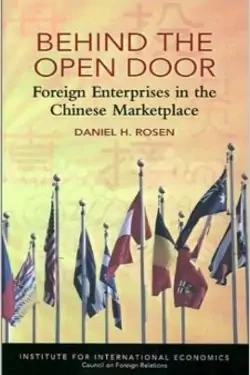
Behind the Open Door
Foreign Enterprises in the Chinese Marketplace

- Book
- Foreign policy analyses written by CFR fellows and published by the trade presses, academic presses, or the Council on Foreign Relations Press.
This study describes the experiences of foreign-invested firms in the mainland Chinese economy and discusses the implications of those experiences for the foreign commercial policies of the industrial countries, including the United States. It draws on extensive interviews with expatriate managers and other professionals currently at work in China.
Whereas recent books on Chinese marketplace conditions focus on a single firm or issue or lack a discussion of policy conclusions (because they are prepared for a commercial audience), this study is distinguished by the breadth of industry interviews and its concern for policy implications. Rosen makes a rare attempt to deduce the policy implications of current experiences of foreign firms in China, presenting conclusions that go beyond those found in today's usual policy debate.
More on:
Behind the Open Door is a must for China specialists and should be read by anyone with general or business interests in China or the Asia-Pacific region. The book is an ideal text for MBA programs that focus on the region, and for political science and Asian studies courses on China.
A Council on Foreign Relations Book
More on:
 Online Store
Online Store